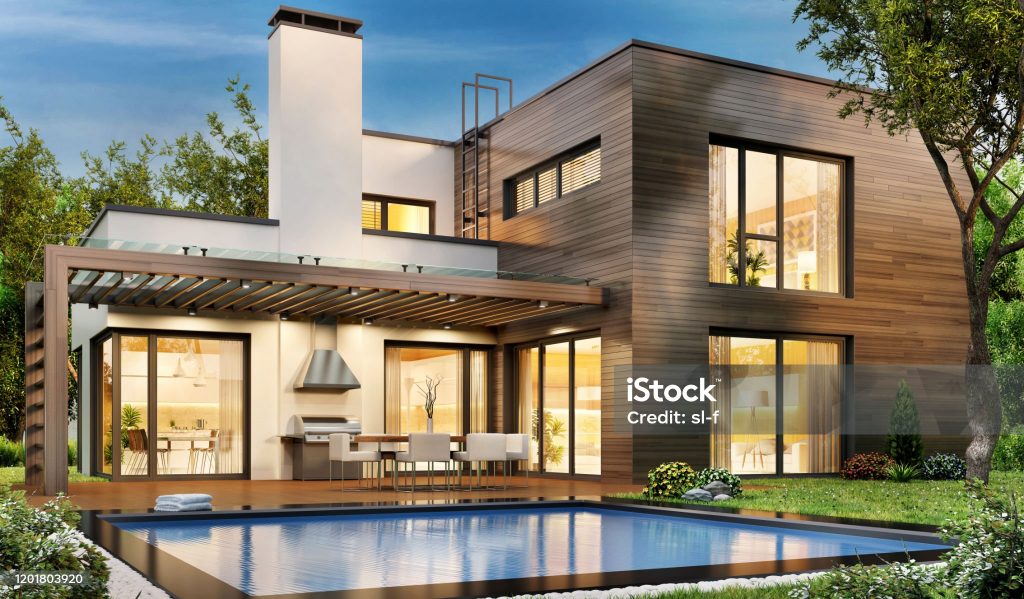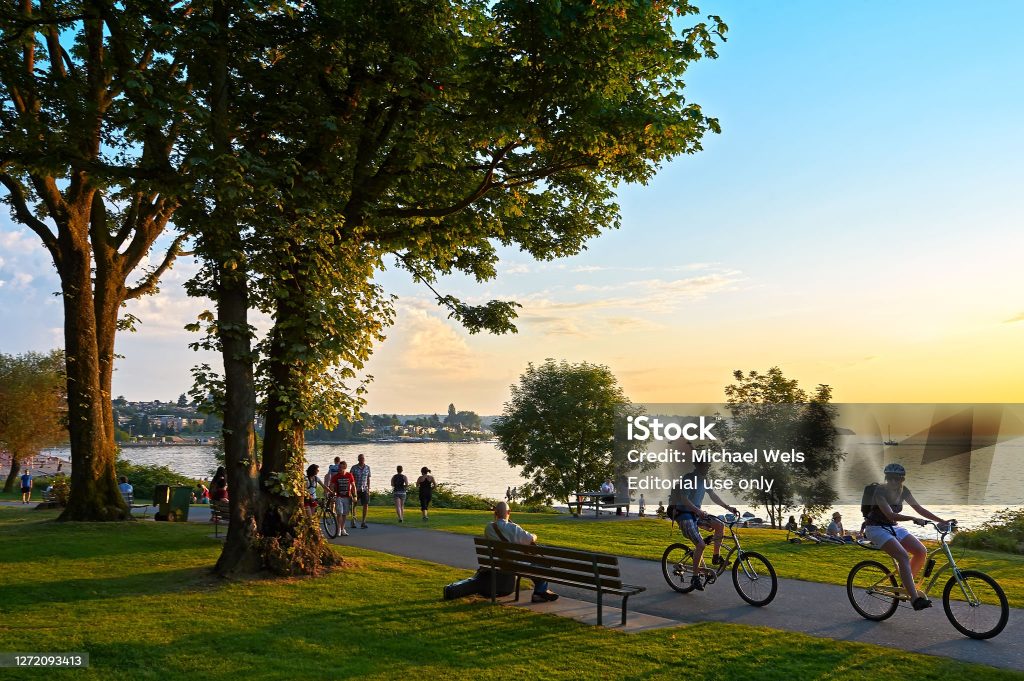You might already have a financing certificate and know what you can afford. Now is the perfect time to take your property search to the next level. However, finding your dream home can quickly become challenging if you don’t know exactly what you’re looking for—or more importantly, which criteria are absolutely non-negotiable for you.
It’s easy to generally desire a “big” house or an “old building” apartment. However, to make your property search more effective, you should carefully consider what makes up your ideal home. How big should your “big” house be—220 square meters or 460 square meters? And when you think of an old building apartment, are you thinking of a structure built before 1900 or before 1980?
Before you plan your next viewing, take the time to create a list of your needs and desires. Perhaps a garage is something you want, but you might be willing to forego it if you find the right house.
Your priorities might change as you learn more about your options. Proximity to the city may initially be crucial, but once you see the size of the homes in the suburbs that you can afford, a short drive or using public transportation might also seem acceptable. Without an unlimited budget, you will likely have to make some compromises.
We have compiled a list of steps and tips to help you determine what you like and dislike about your current home so that you can experience more comfort and joy in your next one. You can classify specific house features as “Must have,” “Desirable,” or “Unimportant.” This checklist can then be consulted during each house viewing.
Find out what is possible within your budget.
Clarifying your finances before you start looking for a property can make a crucial difference in a competitive market. By determining your budget and financial leeway, you can more clearly define your essential criteria for house hunting. Consider the following questions:
- Have you already secured your mortgage? If not, we will show you how and why you should obtain a financing certificate. This document acts as proof of your borrowing capacity, making you a more attractive candidate to sellers.
- What price range are you looking in? A financing certificate precisely outlines your possibilities, ensuring you only view properties that are realistically within your reach.
- How much have you saved for a down payment? The size of your down payment can significantly impact the terms of your mortgage and the overall cost of your home.
- And what about hidden costs like future repairs? Consider setting aside a budget for unexpected expenses. Being financially prepared for unforeseen costs will ensure that your new home doesn’t become a financial burden.
- Are you willing to possibly accept a lower price by undertaking renovations yourself, or do you prefer a move-in-ready property? Assessing your willingness and ability to manage renovations is critical, as it can broaden your market options and potentially lower your initial investment.
By clarifying these points in advance, you can make your house search more efficient and targeted. This preparation not only refines your search parameters but also positions you as a serious buyer in the eyes of real estate agents and sellers, potentially speeding up the purchasing process. Additionally, understanding your financial stance thoroughly will help you navigate negotiations more effectively, ensuring you get the best deal possible. Prior financial preparation lays a solid foundation for a smoother, more satisfying house-hunting experience.
Consider your current lifestyle, but don’t forget to plan for the future as well!
You might already have a clear vision of your dream house or apartment, or perhaps you are still unsure what your future home should look like. It can be helpful to first consider your basic needs and essential criteria for a new home. Start by analyzing your current living situation—what do you like best about your current home and what would you like to change? Consider whether:
- You need space for a future nursery or rather a home office,
- You have specific needs for your current (or future) pets, such as a fenced garden,
- Barrier-free access or few steps are important to you,
- You need space for a car or whether you rely entirely on public transport,
- Quick access to local recreation areas is important to you,
- You plan to change jobs in the next one to two years.
By considering these points, you can better assess which features your future home must have to support both your current and future lifestyle.
Expanding on this, you should also think about the potential growth of your family or changes in your living arrangements. For instance, if you frequently host guests, consider whether an extra bedroom or a dedicated guest area might be necessary. Additionally, if you enjoy outdoor activities, look for properties with suitable outdoor spaces or amenities such as bike storage or a swimming pool.
Consider the long-term value of the property as well. Is the area developing or expected to improve over the years? Will the home require significant upgrades or renovations soon? Understanding these factors can influence your decision on whether a property is a good long-term investment.
Furthermore, reflect on the community and its cultural atmosphere. Are there community centers, parks, or arts and entertainment options that align with your lifestyle? Are the local schools highly rated, if considering educational opportunities for children or resale value influenced by school districts?
By taking the time to carefully think through all these aspects, you ensure that the home you choose is a perfect fit not only for your current situation but also for the evolving future, maximizing your satisfaction and investment in your new home.
Choose your preferred living style and type of property.
Once you’ve established the basics, you can focus on the features you want in a property. Look at the different types of apartments and houses on the market in the regions where you want to buy. Ask yourself the following questions (and make sure your answers align with what you’ve noted on your property search checklist):
- How many floors would you like?
- Do you want to live in a townhouse, a condominium, or a detached single-family home? Learn about the pros and cons of condominiums compared to single-family homes.
- Could you see yourself living in a historic building?
- How many bedrooms do you need?
- Do you want a guest room, or is a garden more important?
- What type of flooring do you prefer?
- Which architectural styles do you like the most?
- What is your favorite room and what makes time spent there enjoyable?
- If you have an outdoor area, do you enjoy spending time there?
- Do you enjoy maintaining a garden, or do you find it burdensome (be honest)?
These considerations will help you refine your search and ensure that you find a property that meets your needs and preferences. Expanding on these, consider also the orientation of the home — does it get enough natural light for your liking? Are energy-efficient or green features important to you, such as solar panels or sustainable building materials?
Think about your daily routines and how your potential new home would accommodate them. For example, if you work from home, ensuring a quiet space or a dedicated office area might be essential. If you entertain often, a spacious kitchen or a dining area that can accommodate large groups could be a priority.
Also, consider the potential for future modifications or expansions. Is there room to grow, or restrictions that could limit changes you might foresee needing? Checking zoning laws and property boundaries might be crucial if expansion is in your plans.
Lastly, consider your long-term goals and how this property fits into those plans. Is this a starter home you plan to move from as your family grows, or are you looking for a forever home that you can grow into over the years? This will influence not only the type of property you choose but also the location, taking into account things like schools, employment opportunities, and community development plans.
By thoroughly thinking through both your current needs and future plans, you ensure that your new home will serve you well both now and in the years to come.
Choose a location or region where you want to feel at home.
You can change the paint colors to refresh the feel of your home or add an extension to increase your living space, but you can’t change the location of your property. Whether you’re personally searching for a home or just browsing listings, it’s easy to get carried away by the features of a property, but you should also consider the surrounding area.
Ask yourself the following questions:
- Do you prefer an urban, suburban, or rural setting?
- In which canton, region, or locality do you want to live?
- Do you need easy access to highways or public transport?
- How important is the view?
- Can you sleep easily despite traffic noise?
- Are there recreational areas that are easily accessible on foot or by bicycle?
- What are the tax rates? For condominiums, are there costs associated with the co-ownership?
These considerations will help you choose a location that not only meets your housing needs but also secures your quality of life in the long term. Moreover, delve into aspects such as local healthcare facilities, cultural offerings, and social dynamics of the area. Consider whether the community is welcoming and whether it hosts events that align with your interests, such as markets, concerts, or sports events. If you enjoy dining out or frequenting cafes, the presence of quality eateries should be on your checklist.
Additionally, it’s essential to think about the future development plans of the area. Are there upcoming infrastructure projects that could enhance or detract from the quality of life? For example, new parks, shopping centers, or major transportation projects could increase property value and living convenience, while new industrial developments might lead to increased noise or traffic.
By extending your evaluation to include these broader and longer-term considerations, you ensure that your chosen location not only suits your immediate needs but also holds potential for future appreciation in both property value and lifestyle quality. This comprehensive approach to choosing a location will help safeguard your investment and ensure a happy, fulfilling home life.
Get to know your new (potential) neighborhood.
You might think you’ve found the perfect home in the perfect area, but before making any commitments, it’s crucial to explore the neighborhood, especially if it’s unfamiliar to you. Taking time to understand the dynamics of the area can prevent future regrets. Here are some essential questions to consider:
- Community Fit: Are you happy with the vibe of your new neighborhood? Does it reflect your lifestyle and values?
- Activity Level: Are there enough things to do around? Conversely, is it too noisy or crowded for your liking, which might affect your peace of mind?
- Commute and Accessibility: How will your daily commute change? Are you satisfied with the transportation options available? Consider both public transport and driving conditions.
- Educational Facilities: If you have or are planning to have children, how far are the kindergarten or schools? Look into the quality of educational institutions in the area.
- Proximity to Essentials: How convenient is it to reach essential services? Assess the distance to supermarkets, pharmacies, hospitals, and clinics. This is especially important if you need regular medical care.
- Recreational Amenities: Are there parks, gyms, or recreational facilities that fit your lifestyle needs? Access to green space can significantly enhance your quality of life.
- Social Atmosphere: Does the neighborhood have a strong community spirit? Are there community centers, clubs, or groups that you can join? Being part of a community can make transitioning to a new area much smoother.
Investing time to explore these aspects thoroughly will ensure that your new home is not only in a perfect area geographically but also a perfect match for your lifestyle and future plans.
Document Your Viewings
When you’re ready to personally view a property, the first step should be to request the sales brochure from the seller. A good listing on online platforms often also offers 3D tours, which can give you a first impression of the property. It’s advisable to carefully review this material to familiarize yourself with the key features and layout of the property before scheduling a viewing appointment. The 3D tour allows you to virtually move through the rooms and get a sense of the space distribution, amenities, and overall condition. This can help you preselect and strategically plan viewing appointments to only visit properties that meet your requirements and have piqued your interest.
During your viewing, you can take notes and photographs of the property, noting the specific room where each photo was taken. This is a good opportunity to reconsider some of your must-haves. Does this property meet all your needs? Get a feel for the house or apartment and consider whether you’ve overlooked something from your list. Remember that paint can be changed and staged furniture can be replaced, but there are aspects that aren’t as easily altered:
- Space Considerations: Is there enough space, or too much? Where could you use more space? This will help you visualize living in the home and whether it can accommodate any future changes in your lifestyle or family size.
- Room Layout: How would you describe the room layout? Does it flow naturally, or are there obstructions that could disrupt daily life? Think about how the spaces connect and if they make sense for your daily routines.
- Interior Details: Do you like the fixtures and finishes in the kitchen and bathroom? Are they modern or in need of an update? This could affect your budget if renovations are needed.
- Lighting and Windows: Are you satisfied with the windows? Consider aspects like daylight availability, placement, and whether they provide adequate privacy. A home that is too sunny might require additional cooling in the summer, increasing your energy costs.
- Exterior Appeal: Does the property have an appealing facade? Is the exterior well-maintained, or will it require additional investment to improve its curb appeal?
- Accessibility and Parking: Does the property have adequate parking, or how far is the nearest train station? Consider the convenience of your daily commute and the availability of transportation options.
- Storage and Amenities: Is there sufficient storage for your belongings? Check for closets, basements, attics, or even external storage units. Also, assess any additional amenities, such as laundry facilities, elevators, security systems, or garden areas.
- Neighborhood and Community: Beyond the physical attributes of the house, consider the neighborhood’s feel. Is it friendly and welcoming? Are there community resources or parks nearby? This can significantly impact your satisfaction with the home.
Taking these factors into account during your property viewings will give you a comprehensive understanding of each potential home and help you make an informed decision about whether it’s the right place for you and your family.
Now that you know exactly what you’re looking for, we invite you to browse through our exclusive listings and find your dream property! Our wide range of real estate is ready to be explored, and we are here to support you in your search. Find your new home and let the possibilities inspire you.
We wish you much joy and fun in searching for your new home!










